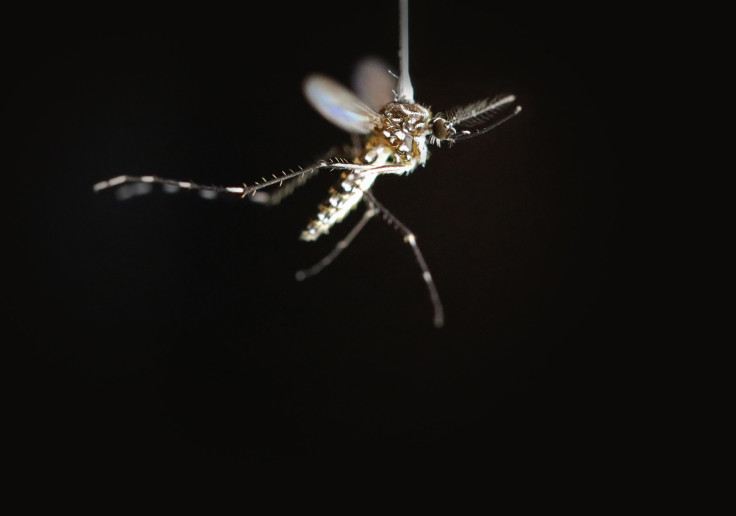Smart Mosquitoes? Bloodsuckers Can Learn To Avoid People Who Swat Them

When it comes to most small creatures, such as insects, we humans don’t usually put much store in their brain capacity. We usually think that most of them live and work primarily by instinct. But the mosquito, that pesky bloodsucker, has shown again we need to rethink our suppositions.
Scientists have known (even though they don’t understand the reasons) for some time that mosquitoes don’t bite people at random, but instead, have clear preferences for certain individuals over others. They have also observed that the victims change over seasons, alternating between mostly birds in the summer and both mammals and birds during other times of the year.
Researchers from University of Washington have now found that mosquitoes can also learn to avoid going near individuals who tried to swat them earlier. In a paper published Thursday in the journal Current Biology, UW researchers said “mosquitoes can in fact learn to associate a particular odor with an unpleasant mechanical shock akin to being swatted. As a result, they’ll avoid that scent the next time.”
To arrive at this conclusion, researchers first put test mosquitoes through Pavlovian conditioning, in which the insects learned to associate the smells of specific people or species with a mechanical shock, which was simulated by vibrations and accelerations produced using a simple vortex mixer in the laboratory.
Mosquitoes displayed quick learning, associating specific odors with the shocks, and used that learning when deciding which direction to fly in. In a curious exception, mosquitoes somehow always flew to the smell of a chicken, even when it was associated with a mechanical shock. Maybe mosquitoes really like chicken (or chicken blood, in this case), who knows?
“Once mosquitoes learned odors in an aversive manner, those odors caused aversive responses on the same order as responses to DEET, which is one of the most effective mosquito repellents. Moreover, mosquitoes remember the trained odors for days,” Jeff Riffell, a UW professor of biology and senior author of the study, said in a statement.
Much like other animals, learning in mosquitoes is also dependent on dopamine, the researchers showed. They did that by looking at the neuron activity in the olfactory centers of mosquito brains. Mosquitoes who had been genetically modified to take away their dopamine receptors lost the ability to learn the odor-shock association.

“By understanding how mosquitoes are making decisions on whom to bite, and how learning influences those behaviors, we can better understand the genes and neuronal bases of the behaviors. This could lead to more effective tools for mosquito control,” Riffell said.
With their new understanding of how learning works in mosquitoes, the researchers are now looking into how the insects choose their favored hosts. According to Riffell, that ability could also be linked to dopamine.
Coauthors on the open-access paper, titled “Modulation of Host Learning in Aedes aegypti Mosquitoes,” included researchers from University of California, Riverside, and California Institute of Technology.
© Copyright IBTimes 2024. All rights reserved.





















